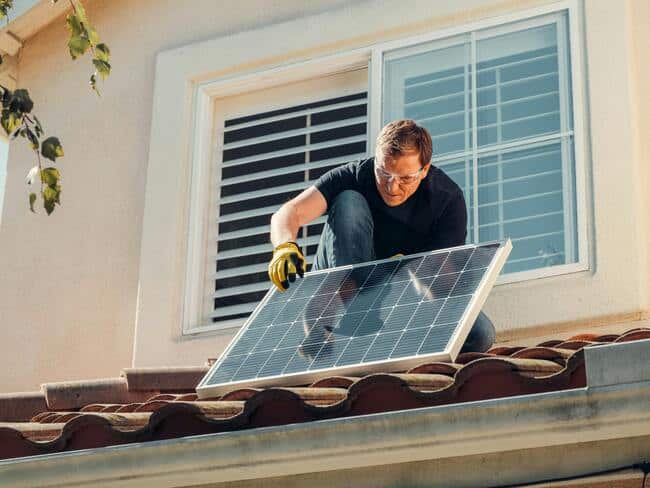The trend towards eco-friendly home choices is on the up, driven by a growing sense of community pride in renewable energy, despite obstacles like limited understanding and insufficient government advocacy slowing wider uptake.
The era of coveting new cars or the surge in pet acquisitions during the pandemic has been eclipsed by the sway neighbours hold over each other regarding home enhancements and eco-conscious living. Insights unveiled today by Solar Together highlight the significant role of neighbourly interactions and perceptions towards renewable energy.
Recent findings indicate that a substantial portion of the British populace, over one-third, are significantly swayed by their neighbours towards adopting greener lifestyles, with nearly 40% open to home improvements following a neighbour’s upgrade or installation. Furthermore, over a quarter of respondents prefer or would opt for residing in communities known for their green ethos, showcasing a preference for renewable energy solutions like solar panels.
Despite this, the research also points to a quieter side, with 28% of Britons not engaging with their neighbours. Yet, among those who do, nearly 10% find themselves discussing environmental issues more than five years ago, with 20% willing to consult their neighbours on renewable energy options for their homes. Notably, economic concerns are becoming a predominant topic of conversation, engaging over 40% of the population in discussions, often over the garden fence.
Adam Parvez, Behavioural Science Specialist at iChoosr, which is behind the Solar Together group purchasing initiatives, states, “Our new research shows the power of social influence and community dynamics in fostering sustainable behaviours. Individuals look to their peers for cues on how to act, especially in areas where they may feel uncertain or seek validation.
“The findings build on previous research that found one of the biggest predictors of getting solar panels was if your neighbour also had them – and, in particular, if existing installations are highly visible. Understanding and harnessing these behavioural drivers will not only drive adoption of renewable energy – facilitating a shift towards more sustainable living – but also build stronger, more environmentally conscious communities in the process.”
However, despite 44% expressing a desire for increased self-reliance, complexities and misunderstandings regarding the financial aspects of renewable energy installations deter homeowners. The impending General Election further muddies the waters, with a considerable fraction of the populace unclear on the Government’s stance and strategies on environmental matters, with a third unaware of the current UK Energy Secretary.
George Frost, UK Country Manager at iChoosr, comments, “The rising cost-of-living and shakeup in the energy market over the past couple of years have shifted perceptions and attitudes – and as a result rising numbers of homeowners are looking for renewable energy sources to cut costs and be more eco-conscious. And, as we can see, more of us are now leaning over the garden fence to ask for neighbourly advice on how to make the switch.”
The survey also uncovers that nearly a quarter of respondents are more inclined to adopt a fitness regimen upon witnessing their neighbours doing the same, though neighbourly influence appears less persuasive in decisions like pet ownership or new car purchases, at 15% and 7% respectively. Cosmetic enhancements and family expansion rank low in terms of neighbourly influence, at 1% and 5%.
iChoosr’s collaboration with councils has propelled the Solar Together programme to success across the UK, culminating in over 30,000 solar panel installations anticipated to reduce carbon emissions by 630,000 tonnes over the next quarter-century.


